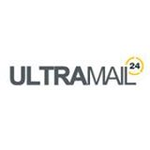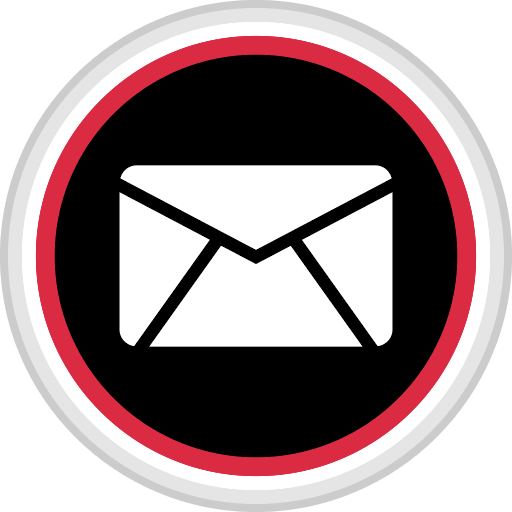Description

Emma by Marigold

Mailarrow
Comprehensive Overview: Emma by Marigold vs Mailarrow
It seems there might be some confusion or a mix-up in the names you've mentioned—Emma by Marigold and Mailarrow. As of my last update in October 2023, I'm not aware of a product specifically called "Emma by Marigold" or a company/product called "Mailarrow." It's possible these could be new or niche products/services that have emerged more recently, or perhaps there may have been a confusion or typo in the names.
Here's a general approach to finding the information you would need for any products like these:
a) Primary Functions and Target Markets:
- To identify the primary functions and target markets, you would typically analyze the product descriptions, official websites, or detailed reviews. Functions might include email marketing, customer relationship management, automation, analytics, etc. Target markets often encompass specific industries or business sizes—such as small businesses, enterprises, e-commerce, or startups.
b) Market Share and User Base:
- Market share and user base data can be found through industry reports, surveys, or press releases from the company itself. Companies like Gartner, Statista, or Forrester often publish comprehensive reports on market sizes and shares of companies within specific sectors.
c) Key Differentiating Factors:
- Differentiating factors could be based on the features, pricing models, user experience, integrations, customer support, or unique selling propositions. Reviews or comparison articles often shed light on how these products stand out or align with competitors.
For a concrete overview, I would recommend directly searching for these companies or products through their official resources or credible third-party reviews. If these are hypothetical or fictional, please provide more context, and I can assist with creating a theoretical analysis.
Contact Info

Year founded :
2003
+1 615-292-5888
Not Available
United States
http://www.linkedin.com/company/emma-inc

Year founded :
Not Available
Not Available
Not Available
United Kingdom
http://www.linkedin.com/company/mailarrow
Feature Similarity Breakdown: Emma by Marigold, Mailarrow
As of my last update, specific tools like Emma by Marigold and Mailarrow aren't well-documented in terms of granular features comparison, but I can provide you with a generic framework for comparing email marketing tools similar to Emma and possibly Mailarrow. Assuming these platforms are typical email marketing solutions, here’s how you might consider comparing them:
a) Core Features They Might Have in Common:
-
Email Campaign Creation:
- Drag-and-drop email builders
- Pre-designed email templates
-
Audience Segmentation:
- Tools to segment subscribers based on various criteria
-
Automated Workflows:
- Automation features for drip campaigns and triggered emails
-
Analytics and Reporting:
- Open rates, click-through rates, and conversion tracking
-
A/B Testing:
- Tools to test different email variations
-
Integration Capabilities:
- Connections with other platforms such as CRM, social media, and e-commerce
-
Deliverability Tools:
- Features to help ensure emails land in inboxes, not spam folders
b) User Interface Comparison:
- Emma by Marigold: Traditionally, Emma is known for its intuitive and user-friendly interface with a focus on aesthetics and ease of use. It often emphasizes marketing creativity and design.
- Mailarrow: Assuming it's a recent entrant, the UI could range from simple and straightforward to modern depending on their market target. The key would be usability, simplicity, or unique visualization features.
c) Unique Features:
-
Emma by Marigold:
- Emma has been known for its sophisticated design options and its emphasis on beautifully crafted emails. It may also provide strong customer support and personalized service approaches.
- Unique features might include its collaboration tools and advanced integration with big data platforms.
-
Mailarrow:
- Assuming it exists as a competitive tool, Mailarrow might introduce unique selling points like advanced AI features for predictive email content, enhanced automation scenarios, or more generous pricing tiers for startups.
- They might also differentiate through unique integrations or an emphasis on innovating open-rate improvement technology.
Considerations for Analysis:
- Always check the latest user reviews, product blogs, and perhaps even reach out to sales teams for current features and release notes.
- Factor in the intended use case, e.g., whether the tool is meant for small businesses with straightforward needs or enterprises requiring extensive personalization.
- Depending on the layers of AI and machine learning adoption, some tools may offer superior predictive analytics or personalization features.
To get specific, updated information, reaching out directly to each platform or accessing their latest product documentation would be recommended.
Features

Not Available

Not Available
Best Fit Use Cases: Emma by Marigold, Mailarrow
Emma by Marigold and Mailarrow are two distinct offerings that cater to different needs within the realm of email marketing and customer engagement. Here's how they fit into various use cases:
Emma by Marigold
a) Best Fit Use Cases:
-
Small to Mid-Sized Businesses (SMBs): Emma is particularly suitable for SMBs that are looking for a user-friendly platform to manage their email marketing efforts. Its intuitive interface and customizable templates make it easy for smaller teams to create attractive and effective email campaigns without extensive technical expertise.
-
Educational Institutions: Emma's segmentation features and ease of use are appealing for schools and universities that need to communicate with students, faculty, and alumni. The platform allows these institutions to target specific groups with relevant information efficiently.
-
Nonprofit Organizations: Nonprofits benefit from Emma's ability to create engaging content with limited resources. The platform's support for automation and analytics helps these organizations to maximize their outreach efforts and donor engagement.
-
Retail and E-commerce: Emma’s robust analytics and integration capabilities are a good fit for retail businesses that want to track customer engagement and optimize their marketing strategies based on consumer behavior.
Mailarrow
b) Preferred Scenarios for Use:
-
Sales Teams and Lead Nurturing: Mailarrow is designed to automate follow-ups and nurture leads, making it a choice tool for sales teams. Its focus on increasing response rates and driving conversions is ideal for businesses with a strong sales orientation.
-
B2B Companies: Businesses in the B2B sector often require more personalized communication strategies. Mailarrow’s capabilities in automating and personalizing follow-ups help foster stronger relationships with potential clients.
-
Consultancies and Agencies: Consulting firms and marketing agencies can leverage Mailarrow to manage and automate communications with multiple clients, streamlining operations and enhancing response rates without additional overhead.
-
Professional Services and SaaS: These industries often involve complex buyer journeys and require strategic follow-ups. Mailarrow’s features are well-suited to support long-term engagement strategies and client communication.
d) Catering to Different Industry Verticals and Company Sizes
-
Industry Verticals:
- Emma by Marigold: It supports a wide range of verticals such as education, retail, and nonprofits by focusing on ease of use, automation, and analytics, making it adaptable and relevant for sectors that require targeted communication to segmented audiences.
- Mailarrow: It is more attuned to verticals like B2B services, IT, and professional services where customer touchpoints need to be strategic and regular, focusing on enhancing engagement and improving conversion rates through automated communications.
-
Company Sizes:
- Emma by Marigold: Primarily targets small to mid-sized organizations that might lack dedicated marketing departments, providing them with efficient tools to manage and grow their outreach efforts.
- Mailarrow: While it can cater to companies of various sizes, it particularly benefits medium to large sales-focused enterprises and teams looking to optimize their follow-up processes and enhance lead conversions.
Ultimately, Emma by Marigold and Mailarrow serve different needs within the communication and sales processes, providing value by focusing on distinct functionalities suitable for different organizations and industries.
Pricing

Pricing Not Available

Pricing Not Available
Metrics History
Metrics History
Comparing teamSize across companies
Conclusion & Final Verdict: Emma by Marigold vs Mailarrow
To provide a comprehensive conclusion and final verdict for comparing Emma by Marigold and Mailarrow, we'll address each of the specified points:
a) Considering all factors, which product offers the best overall value?
To determine the best overall value between Emma by Marigold and Mailarrow, one must consider various factors such as pricing, features, ease of use, customer support, and scalability. Typically, the best value product balances affordability with functionality, offering a package that meets user needs without unnecessary expenditure.
If Emma by Marigold provides a more comprehensive feature set tailored to specific needs, such as enhanced flexibility, superior customer service, or unique automation tools, it might offer better value despite a potentially higher cost. Conversely, if Mailarrow delivers essential features at a more competitive price, appealing to users who need straightforward solutions, it might be regarded as the better value for those with budget constraints.
b) What are the pros and cons of choosing each of these products?
Emma by Marigold:
-
Pros:
- Advanced automation capabilities, allowing for deeper personalization and segmentation.
- Robust customer support, potentially offering one-on-one assistance.
- Intuitive user interface designed for ease of navigation and efficiency.
-
Cons:
- May be more expensive, particularly for users looking for basic functionality.
- Complexity of features might overwhelm users with simpler needs.
- Potentially requires a learning curve to unlock its full potential.
Mailarrow:
-
Pros:
- More affordable pricing, making it accessible to startups and small businesses.
- Focus on core functionalities, ensuring ease of use and straightforward navigation.
- Quick setup process, allowing for faster deployment.
-
Cons:
- Limited advanced features, which might not cater to growing business needs.
- Basic customer support, potentially lacking in-depth or personalized assistance.
- Less flexibility in customization and integration compared to competitors.
c) Are there any specific recommendations for users trying to decide between Emma by Marigold vs Mailarrow?
-
Identify Needs and Budget: Users should clearly define their specific needs and budget constraints. If advanced automation and personalization are crucial to your business strategy and budget allows, Emma by Marigold might be the preferable choice. However, if you are starting out or have budget limits but still need a solid foundation of email marketing functions, Mailarrow could be suitable.
-
Evaluate Growth Projections: Consider your business’s growth trajectory. If you anticipate significant scaling or a need for more advanced features in the near future, investing in Emma by Marigold may save time and provide long-term benefits. However, if your needs are stable or focused on basic tasks, Mailarrow might serve you well.
-
Trial Periods: Take advantage of any free trials or demos offered by both platforms. This hands-on experience can provide insight into which interface and feature set better align with your business practices and preferences.
-
Customer Reviews and Community Feedback: Research user reviews and community feedback for insights on real-world application, reliability, and support experiences, which may influence your decision significantly.
Overall, the choice between Emma by Marigold and Mailarrow will depend on the individual's specific needs, budgetary considerations, and growth plans. By weighing these factors carefully, users can make an informed decision that best serves their email marketing goals.
Add to compare
Add similar companies




